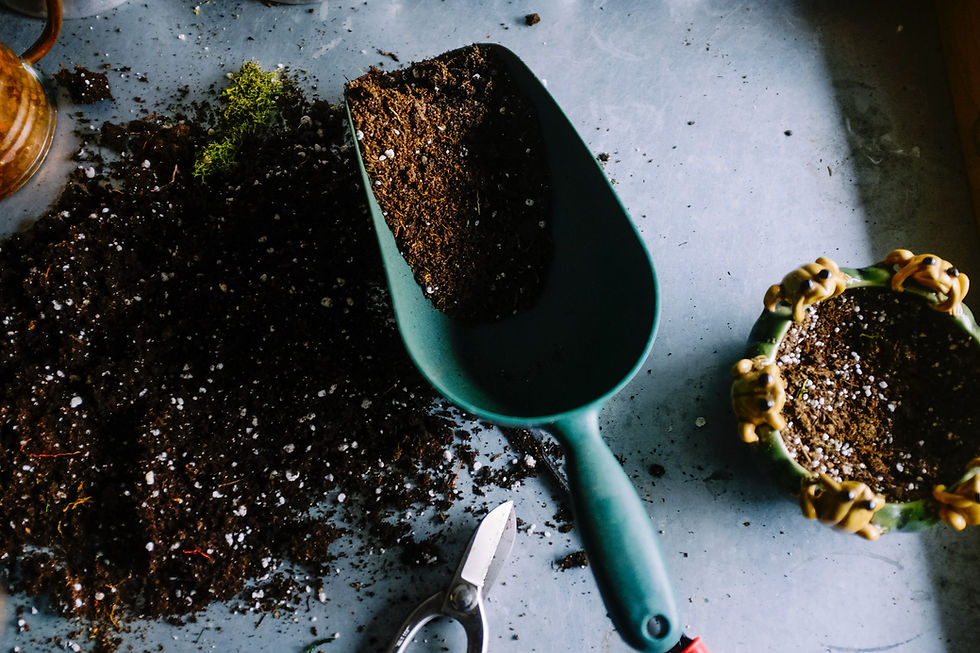What is Compost? And How Can I Make it Faster?
- Benjamin Burrill
- May 21, 2023
- 3 min read
Updated: May 22, 2023
Composting- the ultimate form of recycling. While that may not be the definition of composting, it sure is true! In this article, I hope to explain to you the many wonders of the composting world.
What is composting?
Composting is a controlled aerobic (oxygen-required) process that converts organic materials into a nutrient-rich soil amendment or mulch through natural decomposition. Compost is one of the most valuable things you can have as a gardener. The ability to make nutrient rich soil is a life saver (it'll save your wallet too)!
Compost is normally used as a fertilizer, but it can also be used as regular potting soil to build soil health, prevent soil erosion, conserve water, and improve plant growth and health in your garden.

How do I make compost?
Making compost is easy! The simplest way to make compost is to throw a bunch of kitchen and garden scraps in a container and wait. While this may not be the most efficient way of composting, it is the simplest. The quickest and most efficient way to compost is by hot composting.
Hot composting is a method that produces compost in a short amount of time by optimizing the microbial activity in the compost. It is called hot composting because the internal temperatures of the compost can reach 160 degrees F. If you would like to learn more about hot composting visit the section "How do I speed up my compost?" below.
What can be composted?
Most organic matter can be composted. Things like fruit and vegetable scraps, eggshells, paper products and garden waste can all be composted.
Things like meat and fish scraps, dairy, oils, dog or cat waste, charcoal ash and weeds that have gone to seed should never be composted. These things would decimate your compost, bringing putrid smells and rodents that are sure to destroy the quality of your compost.
How do I speed up my compost?
There are many tips to speed up your compost. These tips apply to all composting, but will specifically help you to make hot compost.
Tip #1
The first tip is to keep your compost pieces small. Many beginner gardeners will throw all their kitchen scraps and garden waste into a container and leave it there for a few months. This process is extremely inefficient and can result in poor quality compost.
I would recommend you to cut the organic matter you are adding to your compost up. This will ensure that your compost will be packed together and will keep heat in the compost.
Tip #2
Our next tip is to aerate the compost. Composting is an aerobic process, meaning it needs oxygen. Without oxygen, composting will take much longer, if it even decomposes into compost at all. My recommendation is to turn the compost every few days. This will ensure adequate oxygen in the soil for decomposition.
Tip #3
Our final tip is to keep a good carbon nitrogen balance.High carbon organic matter is generally brown so they will be referred to as the "browns." High nitrogen items will generally be green so they will be referred to as the "greens."
To keep a good carbon-nitrogen balance, you need to know the correct carbon nitrogen ratio. The general rule of thumb is to have 4-5 parts brown to 1 part green. This is a generalized ratio and does not need to be followed exactly.

The secret to composting!
Many people may claim they know the "secret" to composting, but there really isn't one. The most important part of composting is to have patience.
Patience is the key to successful compost production.



Comentarios